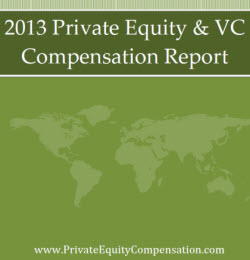A survey of 190 private equity firms around the world by research firm Preqin revealed that only 12 percent offered hike in base salary in excess of 10 percent in 2013. The survey was carried out in collaboration with compensation specialist firm FPL Associates and featured remuneration information for 54 positions including 16 positions specific to real estate. Approximately half the firms surveyed gave a modest raise of less than 10 percent. The trend was similar in the way bonuses were awarded with only 16 percent of firms giving higher bonuses in 2012 than the prior year.
Most PE Firms Left Base Salary Untouched
The Preqin survey found that an overwhelming 86 percent of the firms surveyed had modest change in base salary ranging from 0 to 10 percent. This includes no change in base salary at 32 percent of the firms and increases ranging up to 10 percent in 54 percent of the firms. No private equity offered base salary increase in excess of 50 percent but the base salary was lowered at 2 percent of the firms surveyed.
The survey also found that an overwhelming 84 percent of the firms did not increase the bonuses pooled in 2012 when compared to 2011. A substantial 41 percent of the private equity firms reduced the bonus pool, while 43 percent of the firms offered the same bonus as the prior year.
Large PE Firms Hire Only 10 Staff Per $1 Billion Of Assets
The Preqin study found that private equity firms managing in excess of $10 billion in assets employ just 9.4 people on average for every billion dollar managed. These large firms employed approximately 227 people on average. Firms managing between 1 and 5 billion employed 27 people per billion dollar of assets. On an average, these firms employed 70 staff. Smaller private equity firms with assets less than $250 million had about 14 people on average in their payrolls.
PE Sees Opportunities In Large Infrastructure Projects
Private equity firms are seeing investment opportunities in infrastructure including in pipes, ports and power plant related projects. Andrew Hohns, a managing director at $10 billion private equity credit firm Mariner Investment Group says the financing shortage in infrastructure investing is staggering around the world. Citing data published by the World Bank and the World Economic Forum Hohns noted that the current average annual project finance debt issuance of $205 billion to $370 billion is well below the projected need of $2.8 trillion to $3 trillion annually until 2030.
His comments were echoed by Joseph Adams of the $58 billion publicly traded private equity firm Fortress Investment Group. Adams who heads the transportation and infrastructure divisions within the Fortress Group says building railroads is a very attractive, viable and money making investment. Adams also sees opportunity in investing in ports. He commented, “The port space is something that up until the last four or five years has been largely neglected in the United States. It’s a big opportunity in this country and I think one that really is not properly financed or understood.”
Impact On Job Market
The willingness of private equity funds to fund large scale infrastructure projects is a sign of improving confidence among fund managers in the macro-economy. With some recent surveys showing an increase in private equity fund managers expecting economic improvement, the job market could benefit from the expectation of market stability in the coming months.


